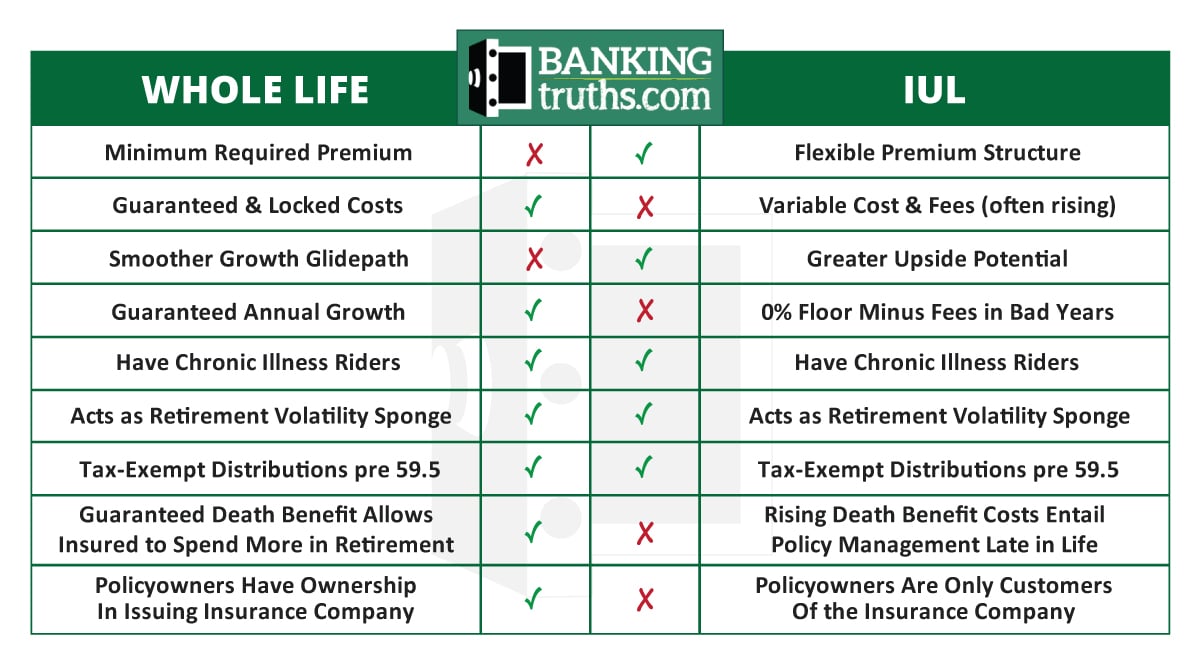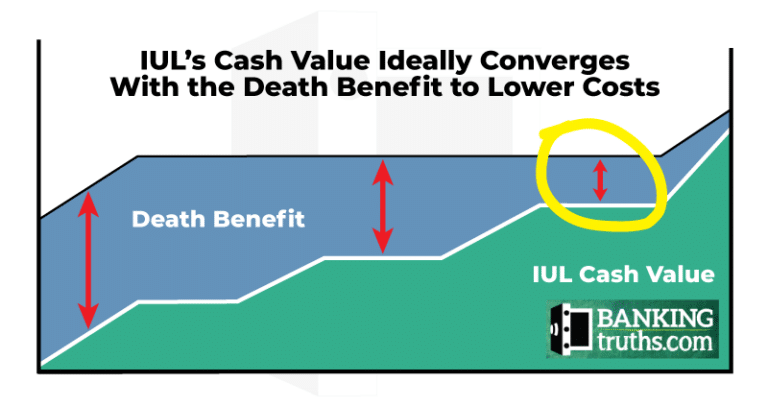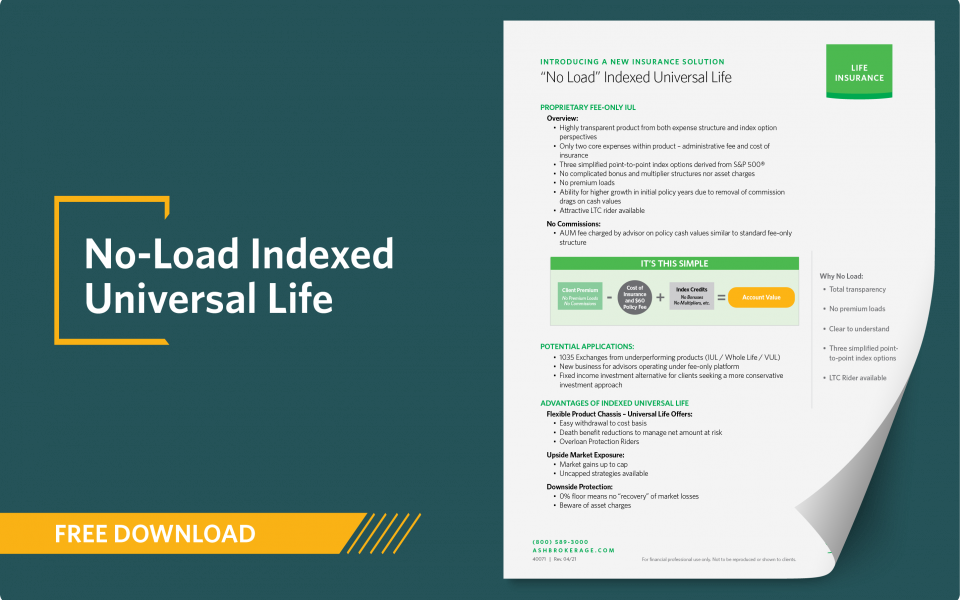All Categories
Featured
Table of Contents
Do they compare the IUL to something like the Lead Overall Stock Market Fund Admiral Shares with no load, an expenditure ratio (EMERGENCY ROOM) of 5 basis factors, a turn over proportion of 4.3%, and an exceptional tax-efficient document of distributions? No, they compare it to some awful actively handled fund with an 8% tons, a 2% ER, an 80% turn over proportion, and a terrible record of short-term funding gain distributions.
Mutual funds typically make yearly taxed circulations to fund proprietors, also when the value of their fund has actually decreased in value. Common funds not only call for earnings reporting (and the resulting yearly tax) when the common fund is increasing in value, but can also enforce revenue taxes in a year when the fund has actually gone down in worth.
You can tax-manage the fund, collecting losses and gains in order to minimize taxable distributions to the financiers, however that isn't somehow going to change the reported return of the fund. The possession of shared funds might require the shared fund owner to pay projected taxes (iul vs term life).

IULs are simple to position to make sure that, at the proprietor's death, the recipient is not subject to either earnings or estate taxes. The very same tax obligation decrease methods do not function nearly too with shared funds. There are numerous, typically costly, tax traps connected with the timed trading of shared fund shares, catches that do not put on indexed life insurance policy.
Possibilities aren't really high that you're mosting likely to be subject to the AMT due to your common fund distributions if you aren't without them. The rest of this one is half-truths at finest. As an example, while it holds true that there is no income tax obligation as a result of your beneficiaries when they inherit the proceeds of your IUL policy, it is likewise true that there is no revenue tax due to your heirs when they acquire a shared fund in a taxed account from you.
Index Universal Life Insurance Canada
There are much better ways to stay clear of estate tax problems than buying investments with low returns. Common funds may trigger income taxation of Social Security benefits.

The growth within the IUL is tax-deferred and may be taken as tax free revenue by means of finances. The policy owner (vs. the common fund manager) is in control of his/her reportable revenue, hence enabling them to reduce or even eliminate the taxation of their Social Protection advantages. This one is terrific.
Below's another minimal problem. It's true if you buy a shared fund for say $10 per share prior to the circulation date, and it distributes a $0.50 circulation, you are after that mosting likely to owe taxes (most likely 7-10 cents per share) regardless of the fact that you haven't yet had any gains.
However in the end, it's truly concerning the after-tax return, not exactly how much you pay in tax obligations. You are going to pay even more in tax obligations by making use of a taxed account than if you purchase life insurance policy. However you're likewise probably going to have more cash after paying those taxes. The record-keeping requirements for having common funds are considerably a lot more complicated.
With an IUL, one's documents are kept by the insurer, copies of annual declarations are sent by mail to the owner, and circulations (if any) are totaled and reported at year end. This one is also kind of silly. Naturally you should maintain your tax obligation records in instance of an audit.
Cost Of Insurance Universal Life
Hardly a reason to acquire life insurance coverage. Mutual funds are commonly component of a decedent's probated estate.
Additionally, they go through the hold-ups and costs of probate. The proceeds of the IUL policy, on the other hand, is always a non-probate circulation that passes outside of probate directly to one's named recipients, and is for that reason exempt to one's posthumous lenders, undesirable public disclosure, or similar delays and prices.
We covered this one under # 7, yet simply to wrap up, if you have a taxed shared fund account, you have to place it in a revocable trust (or even easier, use the Transfer on Death designation) in order to prevent probate. Medicaid disqualification and life time income. An IUL can offer their proprietors with a stream of earnings for their entire life time, despite just how lengthy they live.

This is valuable when organizing one's events, and converting properties to income prior to a nursing home arrest. Shared funds can not be converted in a comparable way, and are usually considered countable Medicaid assets. This is one more silly one advocating that bad people (you know, the ones who require Medicaid, a federal government program for the bad, to spend for their assisted living facility) should make use of IUL rather than shared funds.
Tax Free Retirement Iul
And life insurance policy looks terrible when compared relatively versus a pension. Second, people who have money to purchase IUL above and past their pension are going to have to be dreadful at handling cash in order to ever get approved for Medicaid to spend for their retirement home prices.
Chronic and incurable disease rider. All policies will permit a proprietor's very easy accessibility to cash from their plan, frequently waiving any type of abandonment charges when such people suffer a significant illness, need at-home treatment, or end up being restricted to an assisted living facility. Shared funds do not provide a similar waiver when contingent deferred sales costs still put on a mutual fund account whose owner requires to offer some shares to fund the expenses of such a stay.
Indexed Universal Life Insurance Versus Life Insurance Policy
You get to pay more for that benefit (rider) with an insurance coverage policy. Indexed global life insurance gives death benefits to the recipients of the IUL proprietors, and neither the proprietor neither the recipient can ever before lose cash due to a down market.
Currently, ask on your own, do you in fact need or want a survivor benefit? I absolutely do not need one after I get to economic independence. Do I desire one? I intend if it were low-cost sufficient. Naturally, it isn't cheap. Usually, a buyer of life insurance policy spends for truth expense of the life insurance coverage advantage, plus the costs of the plan, plus the earnings of the insurer.
How To Sell Indexed Universal Life Insurance
I'm not entirely certain why Mr. Morais included the entire "you can't shed cash" once again right here as it was covered fairly well in # 1. He simply intended to repeat the ideal marketing point for these things I mean. Once again, you don't lose nominal bucks, however you can lose actual dollars, along with face serious possibility expense due to reduced returns.

An indexed global life insurance policy policy proprietor might trade their policy for a completely various policy without activating income tax obligations. A shared fund proprietor can not move funds from one mutual fund company to one more without selling his shares at the previous (hence setting off a taxed event), and buying new shares at the last, typically based on sales charges at both.
While it is true that you can exchange one insurance plan for an additional, the reason that people do this is that the first one is such a horrible plan that even after buying a new one and going through the early, negative return years, you'll still come out ahead. If they were marketed the appropriate plan the initial time, they shouldn't have any kind of need to ever before trade it and go via the early, adverse return years once again.
Latest Posts
Insurance Indexation
Indexed Death Benefit
Variable Universal Life Vs Indexed Universal Life